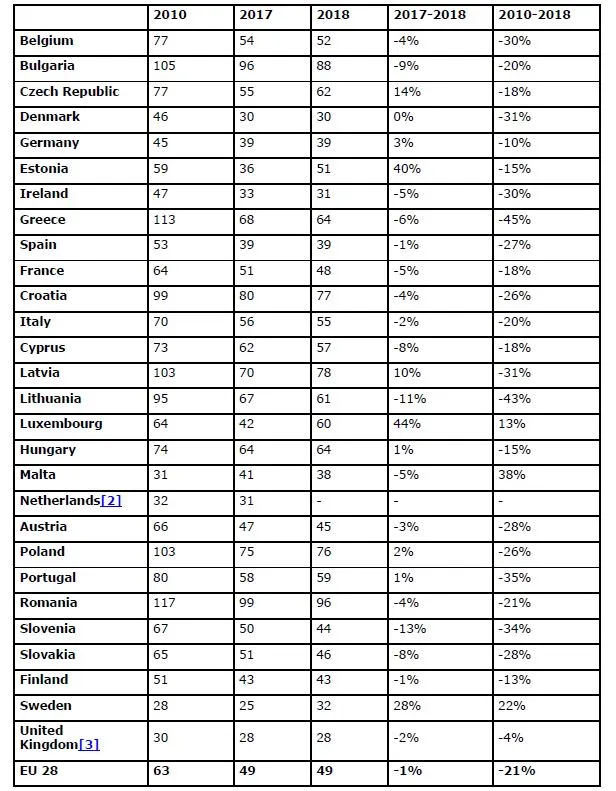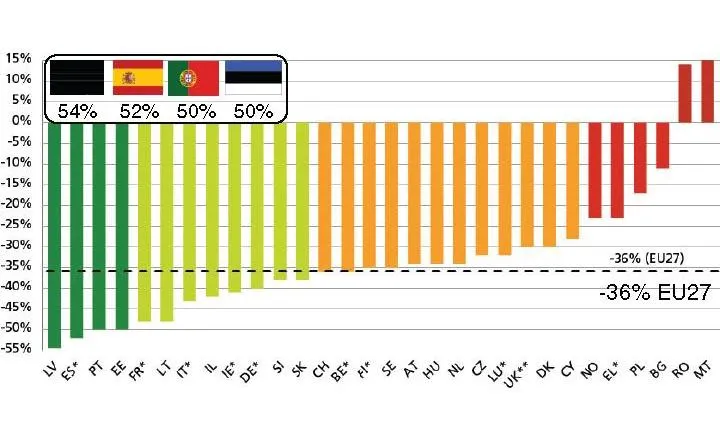Members of the European Parliament have this week proposed over one hundred measures to improve road safety in the European Union. Their key aim is to better protect vulnerable road users, such as pedestrians, cyclists, children and the elderly.
April 30, 2012
Read time: 2 mins
Members of the European Parliament have this week proposed over one hundred measures to improve road safety in the 1116 European Union. Their key aim is to better protect vulnerable road users, such as pedestrians, cyclists, children and the elderly.
Replying to the Commission's 2010 communication "Towards a European road safety area: policy orientations on road safety 2011-2020", MEPs called on the Commission to draw up a 4th road safety action plan.
The resolution sets out recommendations on infrastructure, road signs, driver training, checks and vehicle equipment. It also calls for the rapid introduction of ‘intelligent’ electronic safety equipment.
The EU should promote the use of alcolocks on commercial goods and passenger vehicles and seek an EU-wide 30 km/h speed limit in residential areas, according to a resolution approved by a show of hands on Tuesday. Parliament calls for a new road safety action plan as a matter of urgency, and recommends harmonising road traffic rules, road signs, roadworthiness tests and blood alcohol limits.
A "zero death toll" is the long-run aim that guided Parliament's rapporteur Dieter-Lebrecht Koch (EPP, DE) in drafting a resolution that aims to reduce road deaths by half, serious injuries by 40 per cent and child deaths by 60 per cent between 2010 and 2020.
"The choice of measures and their assessment should be a scientific process, based on comparable, high-quality data, definitions and statistics", said Mr Koch in the debate, adding that "We expect a harmonised analysis of the causes of accidents and injuries and an EU-wide exchange of data which respects a high standard of data privacy".
MEPs also called on the2465 European Commission to appoint an EU road safety co-ordinator to help Member States to put the action plan into effect.
Replying to the Commission's 2010 communication "Towards a European road safety area: policy orientations on road safety 2011-2020", MEPs called on the Commission to draw up a 4th road safety action plan.
The resolution sets out recommendations on infrastructure, road signs, driver training, checks and vehicle equipment. It also calls for the rapid introduction of ‘intelligent’ electronic safety equipment.
The EU should promote the use of alcolocks on commercial goods and passenger vehicles and seek an EU-wide 30 km/h speed limit in residential areas, according to a resolution approved by a show of hands on Tuesday. Parliament calls for a new road safety action plan as a matter of urgency, and recommends harmonising road traffic rules, road signs, roadworthiness tests and blood alcohol limits.
A "zero death toll" is the long-run aim that guided Parliament's rapporteur Dieter-Lebrecht Koch (EPP, DE) in drafting a resolution that aims to reduce road deaths by half, serious injuries by 40 per cent and child deaths by 60 per cent between 2010 and 2020.
"The choice of measures and their assessment should be a scientific process, based on comparable, high-quality data, definitions and statistics", said Mr Koch in the debate, adding that "We expect a harmonised analysis of the causes of accidents and injuries and an EU-wide exchange of data which respects a high standard of data privacy".
MEPs also called on the








